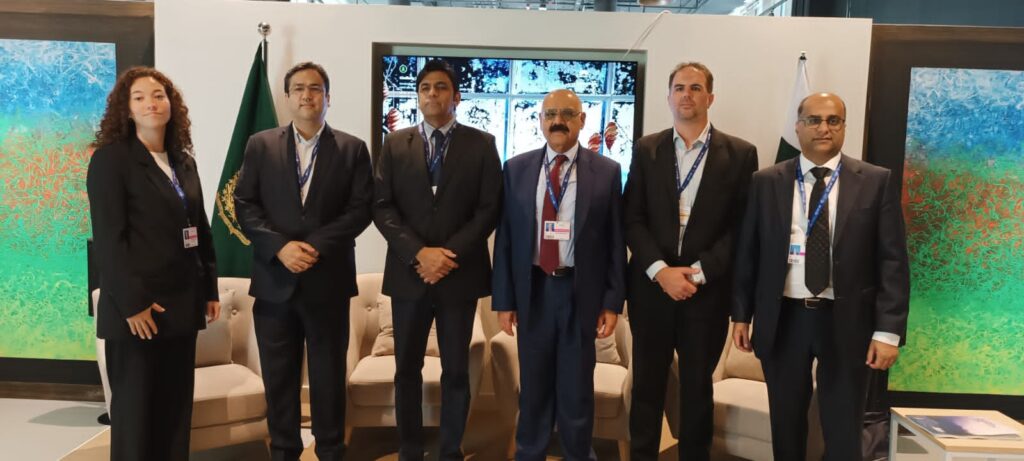
Pakistan’s Multifaceted Approach to Finance, Indigenous Peoples, Gender Equality, Energy and Industry and Accountability.
Islamabad : Pakistan is actively participating in COP28, attending 28 events that offer a worldwide forum for conversations on various viewpoints and climate change-related projects. Under the overarching themes of “Finance/Trade/Gender Equality/Accountability” and “Energy and Industry/Just Transition/Indigenous Peoples,” the Pakistan Pavilion has successfully organized and hosted a total of 10 events to date. The country’s dedication to openness and cooperation is demonstrated by the way different organizations present their initiatives on this global platform. Today’s focus is on the valuable insights derived from key discussions involving the Ministry of Planning, Sindh People’s Housing Foundation (SPHF), UN Women, Danish Energy Agency and the Sustainable Energy & Economic Development Program (SEED).
The COP28 panel titled “Enhancing Cross-Agency Coordination for the Expansion of Climate Finance,” organized by the Planning Commission of Pakistan, was a pivotal gathering of policymakers and experts. Moderated by Ms. Nadia Rehman, Member of the Planning Commission, the session addressed strategies to attract private investment and international support for Pakistan’s climate finance needs. Mr. Awais Manzur Sumra, Secretary at the Ministry of Planning, highlighted the role of the Sustainable Finance Bureau in preparing projects across agencies. He emphasized, “Efficient collaboration is key for impactful climate finance initiatives.”
Sindh People’s Housing Foundation (SPHF) convened an important, focusing on advancing climate action and building resilience after the 2022 floods. The session showcased collaborative efforts between SPHF and International Financial Institutions, aiming to build 2 million resilient houses in Sindh. The Caretaker Chief Minister of Sindh introduced the Donor Platform, a cooperative initiative to unite stakeholders and resources. The international community is invited to actively engage in this transformative initiative, with gratitude expressed to the World Bank and discussions underway with the Islamic Development Bank and Asian Development Bank.
During the panel discussion, OGDCL (Oil and Gas Development Company Limited) participants engaged in a discourse involving various stakeholders. The conversation revolved around exploring how the oil and gas industry can contribute positively to mitigating climate change and improving environmental conditions. OGDCL shared insights into specific initiatives they have undertaken to address climate change and communicated their defined objectives aimed at fostering positive change in climate conditions. The company is dedicated to achieving these objectives as part of its commitment to making tangible contributions to climate improvement.
UN Women contributed significantly to Gender Day at COP28, emphasizing inclusive policies for a fair transition. Co-hosting two events at the Pakistan Pavilion, UN Women and the Ministry of Climate Change highlighted the interconnectedness of gender, climate, and security. The discussions included perspectives from national and international institutions, climate activists, youth, the private sector, and financial institutions.
The collaboration between the Pakistan Pavilion and the Sustainable Energy & Economic Development Program (SEED) centered on exploring climate investment potential in Khyber Pakhtunkhwa and Pakistan. The event featured an exposition on investment prospects, followed by a panel discussion with experts. Topics included navigating the carbon market, green standards, nature-based solutions, and investment opportunities in Pakistan, specifically in KP. The Secretary of the Ministry of Climate Change expressed gratitude and assured support for future initiatives in climate finance and carbon markets.
These discussions underscore Pakistan’s dedication to addressing climate challenges comprehensively, promoting global cooperation, and building a sustainable and resilient future.